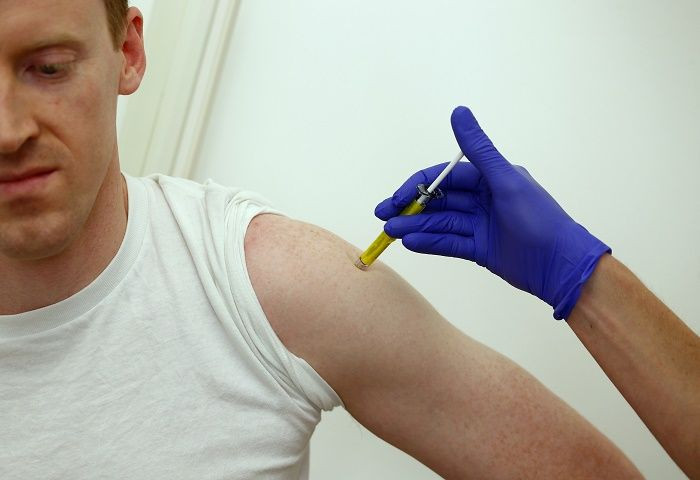US Ebola Survivors Can Experience Hair Loss, Joint Pain, And Other Health Problems Without Proper Monitoring

The road to recovery is long and bumpy for many survivors of the Ebola virus in the United States, according to a study published in the New England Journal of Medicine.
The study authors found U.S. Ebola survivors experienced a myriad of health issues, including joint pain, ocular disease, hearing loss and extreme fatigue. "For patients who survived [Ebola], the story does not end with their discharge from an Ebola treatment unit in West Africa or a hospital in the U.S.," said Timothy Uyeki, epidemiologist with the Centers for Disease Control and Prevention and one of the authors of the report, according to Live Science.
Nancy Writebol, a missionary and one of the first Americans diagnosed with Ebola during the epidemic, told The Charlotte Observer in July, a year after her diagnosis, that she still experiences knee pain and a loss of stamina.
Nurse Nina Pham also said she suffered from long-lasting symptoms after treatment, according to The Dallas Morning News. Pham, who became the first person to contract Ebola in the U.S. back in October 2014, reportedly experienced "fatigue, insomnia, body aches and liver problems, and is frightened by the unknown possible long-term effects of Ebola and experimental treatments used to save her life."
The World Health Organization reported the Ebola epidemic has resulted in nearly 30,000 suspected, probable and confirmed cases of the rare and deadly disease, with more than 11,000 deaths. Between Aug. 2 and Dec. 31, 2014, 10 people received treatment for the severe illness in the United States; of those patients, only eight survived.
For the study, researchers administered a follow-up survey to the eight Ebola survivors about health issues or complications that occurred any time during their recovery period.
The most common health problems among the survivors were joint aches, extreme lethargy or fatigue, and hair loss, which were each reported by 75 percent of the survivors. Five survivors said they experienced ocular symptoms, including pain, discomfort, or blurriness. And of these patients, four underwent ophthalmologic evaluation, and two were treated for a form of eye inflammation that is currently the third leading cause of blindness. Other complications included experiencing shortness of breath, an irregular heartbeat, and psychological or cognitive symptoms, including short-term memory loss, insomnia, and depression or anxiety.
While most of the symptoms have been resolved or improved, only one survivor said all the symptoms had gone away.
"[The report] reinforces the importance of monitoring and follow-up of survivors of Ebola virus disease in the U.S. and worldwide to address their medical management and mental health," Uyeki said.
Researchers said the findings could help inform the needs of other Ebola survivors.
Source: Epstein L, Wong K, Kallen A, Uyeki T. Post-Ebola Signs and Symptoms in U.S. Survivors. The New England Journal of Medicine. 2015.



























